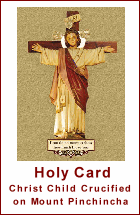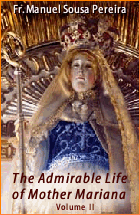NEWS: July 1, 2019
 |
 |
 |
 |
 |
 |
 |
Bird’s Eye View of the News
THE ECONOMY OF FRANCIS -
On May 1st, day of the International Communist, Pope Francis signed a letter, which L’Osservatore Romano only published on May 12, 2019. In it he summoned young entrepreneurs and economists from all religions and all parts of the world to attend a meeting in Assisi on March 26-28, 2020. He invited them to join together in an effort to launch a new economy, which he names the Economy of Francis.
/bev234_Web.jpg) A first reaction to this name is one of surprise: Why is the Pope naming this initiative after himself? Doesn’t it look pretentious?
A first reaction to this name is one of surprise: Why is the Pope naming this initiative after himself? Doesn’t it look pretentious?
Pope Francis has an escape: He is naming it after St. Francis of Assisi, and he will be meeting with those young people on the date when St. Francis divested himself of his bourgeois clothing and entered a new life, the life of Franciscan poverty. So, the name is ambivalent: Although many people will understand that the Economy of Francis is the economy of Pope Francis, he can safeguard his humility by saying that he is preaching an economy based on Franciscan poverty.
It is a Jesuit minor trick to confuse what will actually inspire this “new” economy. At any rate, we can clear up this confusion by stating that the Economy of Francis is how Pope Francis imagines an economy based on St. Francis of Assisi should be.
Main guidelines
What are the principal characteristics of this economy?
I will translate from the Italian text of the letter in L’Osservatore Romano:
In a word: Pope Francis wants to replace Capitalism with a new economy based on Franciscan poverty.
Social role of the three vows
There is a fundamental flaw in Francis’ plan. The exceptions in society cannot be applied to the whole without running the risk of destroying social life.
I exemplify: The three religious vows, which are models of perfection for a small number of persons, when applied to the entire social body, destroy it.
Chastity: We can readily praise the vow of chastity when it is practiced by a small group of persons. However, if a legislator were fool enough to oblige all citizens to practice this evangelical counsel, he would doom the whole social body to certain death in three generations.
/bev234_monk.jpg) Obedience: Nothing is nobler than having a few persons who abdicate their own will in order to obey the decisions of their superiors. This is very beautiful in a religious order when applied to a restricted number of persons. However, if strict obedience were applied to all members of society, we would have a population of zombies without any awareness of their rights and duties.
Obedience: Nothing is nobler than having a few persons who abdicate their own will in order to obey the decisions of their superiors. This is very beautiful in a religious order when applied to a restricted number of persons. However, if strict obedience were applied to all members of society, we would have a population of zombies without any awareness of their rights and duties.
Poverty: An analogous thing occurs with the vow of poverty. Radical poverty is perfectly conceivable for a group of monks or nuns who live cloistered in a monastery or convent.
However, when applied to the whole of society, it destroys the foundation of Law and Justice, which are the very concepts of mine and yours. If Franciscan poverty were applied to everyone in society, we would have Communism even if we gave it different names: economy of communion, economy of solidarity, economy of fraternity.
The three vows of religious perfection are meant to balance society by having some few persons voluntarily do the opposite of what society should normally do.
To balance an unrestrained attachment to the pleasures of flesh, even the legitimate ones inside marriage, we have the vow of chastity. The whole society becomes more measured and moderate when its members know that some religious persons live a life of perfect chastity.
To balance the excesses of liberty and tendencies toward cheating that make the laws governing a society difficult to enforce, we have on the opposite pole the vow of obedience. The normal citizen is more docile and prone to obey the common laws when he knows that some few persons in a nearby religious house freely chose to abdicate their own wills.
To compensate for an exaggerated attachment to material goods, which encourages greed and exacerbates quarrels and litigation in society, we have the vow of poverty. The fact that a few persons renounced all their property and are free from this type of dispute brings to the whole society a tidal wave of generosity that makes it possible to appease the most complicated situations.
The three vows of religious perfections are not to be imitated by everyone in society. They are set to contrast with the normal way of living in order to maintain social equilibrium.
So, anyone who proposes that these models be adopted by everyone reveals his ignorance of the actual constitution of society and dives into the realm of utopia.
The Economy of Francis, which pretends to adopt Franciscan poverty as a model for “mankind as a whole” is one of these utopias.
Once we are aware of Francis’ adhesion to Liberation Theology, we see that what counts for him is to destroy Capitalism in society, and Monarchy and Sacrality in the Church. Any other reasons appear to be nothing more than pretexts to reach these goals.

/bev234_Web.jpg)
Francis invites young economists and entrepreneurs to join his pact to change the economy
Pope Francis has an escape: He is naming it after St. Francis of Assisi, and he will be meeting with those young people on the date when St. Francis divested himself of his bourgeois clothing and entered a new life, the life of Franciscan poverty. So, the name is ambivalent: Although many people will understand that the Economy of Francis is the economy of Pope Francis, he can safeguard his humility by saying that he is preaching an economy based on Franciscan poverty.
It is a Jesuit minor trick to confuse what will actually inspire this “new” economy. At any rate, we can clear up this confusion by stating that the Economy of Francis is how Pope Francis imagines an economy based on St. Francis of Assisi should be.
Main guidelines
What are the principal characteristics of this economy?
I will translate from the Italian text of the letter in L’Osservatore Romano:
- The event’s goal is “to make a pact to change today’s economy and give a soul to the economy of tomorrow”;
- Assisi, which is “the symbol and the message of a humanism of fraternity” was chosen as a place “to inspire a new economy”;
- St. Francis’ “choice to embrace poverty gave rise to a vision of economics that remains most timely”;
- This economy “gives hope to our future and brings benefits … to mankind as a whole. A vision that is also necessary for the fate of the entire planet, our common home, our sister Mother Earth…”;
- “The safeguarding of the environment cannot be dissociated from ensuring justice for the poor and finding answers to the structural problems of the global economy”;
- “We need to correct models of growth incapable of guaranteeing respect for the environment…”;
- It is necessary “to set in motion a new economic model, the fruit of a culture of communion based on fraternity and equality”;
- “The environment urgently demands a sound economy and a sustainable development that can heal its wounds and assure us of a dignified future”;
- “Given this urgency, each one of us is called to rethink his or her mental and moral priorities to bring them into greater conformity with God’s Commandments and the demands of the common good”;
- “Dearest young people, I know you can hear in your hearts the ever more anguished cry of the earth and its poor…”;
- “Your organizations are workshops of hope for creating new ways of understanding the economy, … for combating the culture of waste, … and for proposing new styles of life”;
- “That is why I would like to meet you in Assisi, so that we can promote together, through a common pact, a process of global change.”
/bev234_Divest.jpg)
The pretense for the name: St. Francis returns his clothing to his father to follow a new path
/bev234_Sustain.jpg)
Francis, at an Sustainable Development Goals conference, striving to unite all religions
In a word: Pope Francis wants to replace Capitalism with a new economy based on Franciscan poverty.
Social role of the three vows
There is a fundamental flaw in Francis’ plan. The exceptions in society cannot be applied to the whole without running the risk of destroying social life.
I exemplify: The three religious vows, which are models of perfection for a small number of persons, when applied to the entire social body, destroy it.
Chastity: We can readily praise the vow of chastity when it is practiced by a small group of persons. However, if a legislator were fool enough to oblige all citizens to practice this evangelical counsel, he would doom the whole social body to certain death in three generations.
/bev234_monk.jpg)
A monk delivers his vows to an abbot, while lay knights defend the Church from her temporal enemies
Poverty: An analogous thing occurs with the vow of poverty. Radical poverty is perfectly conceivable for a group of monks or nuns who live cloistered in a monastery or convent.
However, when applied to the whole of society, it destroys the foundation of Law and Justice, which are the very concepts of mine and yours. If Franciscan poverty were applied to everyone in society, we would have Communism even if we gave it different names: economy of communion, economy of solidarity, economy of fraternity.
The three vows of religious perfection are meant to balance society by having some few persons voluntarily do the opposite of what society should normally do.
To balance an unrestrained attachment to the pleasures of flesh, even the legitimate ones inside marriage, we have the vow of chastity. The whole society becomes more measured and moderate when its members know that some religious persons live a life of perfect chastity.
To balance the excesses of liberty and tendencies toward cheating that make the laws governing a society difficult to enforce, we have on the opposite pole the vow of obedience. The normal citizen is more docile and prone to obey the common laws when he knows that some few persons in a nearby religious house freely chose to abdicate their own wills.
To compensate for an exaggerated attachment to material goods, which encourages greed and exacerbates quarrels and litigation in society, we have the vow of poverty. The fact that a few persons renounced all their property and are free from this type of dispute brings to the whole society a tidal wave of generosity that makes it possible to appease the most complicated situations.
The three vows of religious perfections are not to be imitated by everyone in society. They are set to contrast with the normal way of living in order to maintain social equilibrium.
So, anyone who proposes that these models be adopted by everyone reveals his ignorance of the actual constitution of society and dives into the realm of utopia.
The Economy of Francis, which pretends to adopt Franciscan poverty as a model for “mankind as a whole” is one of these utopias.
Once we are aware of Francis’ adhesion to Liberation Theology, we see that what counts for him is to destroy Capitalism in society, and Monarchy and Sacrality in the Church. Any other reasons appear to be nothing more than pretexts to reach these goals.










